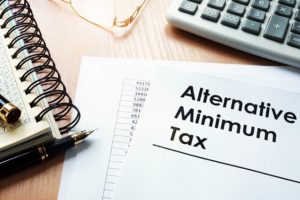What’s the Deal With U.S. Corporate Taxes?

What’s the Deal With U.S. Corporate Taxes?
There has been a lot of back-and-forth amongst lawmakers and political pundits in the media lately regarding U.S. companies switching their addresses to foreign locations in order to avoid corporate taxes. One side claims that there is nothing wrong with such deals, while many democratic lawmakers, including President Obama, contend that it is un-American and that it should be stopped.
However, if you take a closer look at the issue, then you’ll find that the underlying problem isn’t really whether or not companies do these kinds of inversion deals. The real problem can be found in America’s overbearing corporate tax laws. Instead of trying to prevent U.S. companies from moving overseas, perhaps the government should focus on fixing the corporate tax code.
Depending on whom you ask, there are plenty of problems with the corporate tax code, but here are some basic facts that you should be aware of.
• Tax breaks for U.S. corporations equaled about $150 billion in 2013. However, by comparison, tax breaks for individuals reached $1 trillion.
• Revenue from corporate taxes was responsible for 10 percent of all federal tax revenue in 2013.
• Among all developed countries, the United States has the highest corporate tax rate, coming at 35 percent.
• Corporate tax laws are not equal. Different investments and activities are taxed in different ways.
• More U.S. companies than ever before are looking to leave the country. In the 20 years prior to 2004 only 29 companies opted for inversion. However, since the beginning of 2004 through 2013, 47 have occurred.
The debate will rage on, but by focusing more on fixing the cause of the issue (companies leaving the country to save on taxes), the government may find they could fix issue itself if the corporate tax code received a much-needed overhaul.
We hope you found this article “What’s the Deal With U.S. Corporate Taxes?” helpful. If you have questions or need expert tax or family office advice that’s refreshingly objective (we never sell investments), please contact us or visit our Family office page or our website at www.GROCO.com. Unfortunately, we no longer give advice to other tax professionals gratis.
To receive our free newsletter, contact us here.
Subscribe to our YouTube Channel for more updates.

Alan Olsen, is the Host of the American Dreams Show and the Managing Partner of GROCO.com. GROCO is a premier family office and tax advisory firm with clients all over the world.
Alan L. Olsen, CPA, Wikipedia Bio

GROCO.com is a proud sponsor of The American Dreams Show.

The American Dreams show was the brainchild of Alan Olsen, CPA, MBA. It was originally created to fill a specific need; often inexperienced entrepreneurs lacked basic information about raising capital and how to successfully start a business.
Alan sincerely wanted to respond to the many requests from aspiring entrepreneurs asking for the information and introductions they needed. But he had to find a way to help in which his venture capital clients and friends would not mind.
The American Dreams show became the solution, first as a radio show and now with YouTube videos as well. Always respectful of interview guest’s time, he’s able to give access to individuals information and inspiration previously inaccessible to the first-time entrepreneurs who need it most.
They can listen to venture capitalists and successful business people explain first-hand, how they got to where they are, how to start a company, how to overcome challenges, how they see the future evolving, opportunities, work-life balance and so much more..
American Dreams discusses many topics from some of the world’s most successful individuals about their secrets to life’s success. Topics from guest have included:
Creating purpose in life / Building a foundation for their life / Solving problems / Finding fulfillment through philanthropy and service / Becoming self-reliant / Enhancing effective leadership / Balancing family and work…

MyPaths.com (Also sponsored by GROCO) provides free access to content and world-class entrepreneurs, influencers and thought leaders’ personal success stories. To help you find your path in life to true, sustainable success & happiness. It’s mission statement:
In an increasingly complex and difficult world, we hope to help you find your personal path in life and build a strong foundation by learning how others found success and happiness. True and sustainable success and happiness are different for each one of us but possible, often despite significant challenges.
Our mission at MyPaths.com is to provide resources and firsthand accounts of how others found their paths in life, so you can do the same.
Real Estate Agents are Same as Brokers for “Real Estate Professional Rule” for Passive Losses
Real Estate Agents are Same as Brokers for “Real Estate Professional Rule” for Passive Losses Taxpayer victory in Tax Court Real estate agents can claim the real estate professional exception to the passive loss limitations. The I.R.S. tried to argue that the taxpayer needs to be a “Broker” not a just an “Agent” to meet…
10 Tips to Reduce Your Tax Burden
10 Tips to Reduce Your Tax Burden Updated: 1/3/13 With the start of a new year, tax season will soon be upon us. For 2012 returns, the tax filing deadline is April 15, 2013. Now is a good time to look for tax reduction strategies in preparation for filing your tax return. Here are ten…
Avoiding the AMT Trap
Avoiding the AMT Trap Updated: 10/23/2014 More and more taxpayers are finding a hidden tax on their individual tax returns. The alternative minimum tax (AMT) attempts to ensure that high income individuals who benefit from the tax advantages of certain deductions and exemptions will pay at least a minimum amount of tax. This tax was…
Hidden Costs of Estate Settlement
Hidden Costs of Estate Settlement As you look for ways to improve the financial outlook for your family, give extra attention to your choice of an executor for your will. Generally, the fee for settling an estate relates to the responsibilities of the job, not to who does the job. That means that anyone you…




